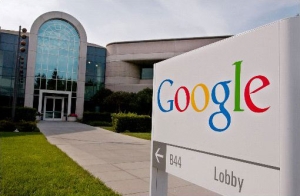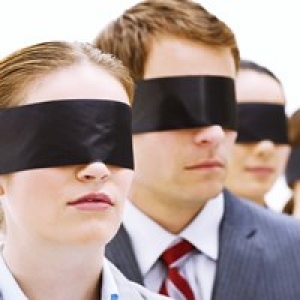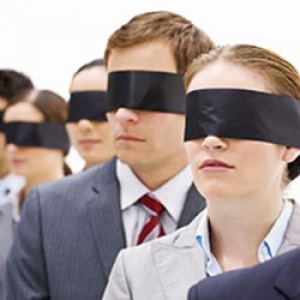From The Blog
-
ConnectWise Slash and Grab Flaw Once Again Shows the Value of Input Validation We talk to Huntress About its Impact
Written by Sean KalinichAlthough the news of the infamous ConnectWise flaw which allowed for the creation of admin accounts is a bit cold, it still is one that…Written on Tuesday, 19 March 2024 12:44 in Security Talk Read 651 times Read more...
-
Social Manipulation as a Service – When the Bots on Twitter get their Check marks
Written by Sean KalinichWhen I started DecryptedTech it was to counter all the crap marketing I saw from component makers. I wanted to prove people with a clean…Written on Monday, 04 March 2024 16:17 in Editorials Read 1544 times Read more...
-
To Release or not to Release a PoC or OST That is the Question
Written by Sean KalinichThere is (and always has been) a debate about the ethics and impact of the release of Proof-of-Concept Exploit for an identified vulnerability and Open-Source…Written on Monday, 26 February 2024 13:05 in Security Talk Read 1087 times Read more...
-
There was an Important Lesson Learned in the LockBit Takedown and it was Not About Threat Groups
Written by Sean KalinichIn what could be called a fantastic move, global law enforcement agencies attacked and took down LockBit’s infrastructure. The day of the event was filled…Written on Thursday, 22 February 2024 12:20 in Security Talk Read 1048 times Read more...
-
NetSPI’s Offensive Security Offering Leverages Subject Matter Experts to Enhance Pen Testing
Written by Sean KalinichBlack Hat 2023 Las Vegas. The term offensive security has always been an interesting one for me. On the surface is brings to mind reaching…Written on Tuesday, 12 September 2023 17:05 in Security Talk Read 2106 times Read more...
-
Black Kite Looks to Offer a Better View of Risk in a Rapidly Changing Threat Landscape
Written by Sean KalinichBlack Hat 2023 – Las Vegas. Risk is an interesting subject and has many different meanings to many different people. For the most part Risk…Written on Tuesday, 12 September 2023 14:56 in Security Talk Read 1824 times Read more...
-
Microsoft Finally Reveals how they Believe a Consumer Signing Key was Stollen
Written by Sean KalinichIn May of 2023 a few sensitive accounts reported to Microsoft that their environments appeared to be compromised. Due to the nature of these accounts,…Written on Thursday, 07 September 2023 14:40 in Security Talk Read 2095 times Read more...
-
Mandiant Releases a Detailed Look at the Campaign Targeting Barracuda Email Security Gateways, I Take a Look at What this all Might Mean
Written by Sean KalinichThe recent attack that leveraged a 0-Day vulnerability to compromise a number of Barracuda Email Security Gateway appliances (physical and virtual, but not cloud) was…Written on Wednesday, 30 August 2023 16:09 in Security Talk Read 2073 times Read more...
-
Threat Groups Return to Targeting Developers in Recent Software Supply Chain Attacks
Written by Sean KalinichThere is a topic of conversation that really needs to be talked about in the open. It is the danger of developer systems (personal and…Written on Wednesday, 30 August 2023 13:29 in Security Talk Read 1853 times Read more...
Recent Comments
- Sean, this is a fantastic review of a beautiful game. I do agree with you… Written by Jacob 2023-05-19 14:17:50 Jedi Survivor – The Quick, Dirty, and Limited Spoilers Review
- Great post. Very interesting read but is the reality we are currently facing. Written by JP 2023-05-03 02:33:53 The Dangers of AI; I Think I Have Seen this Movie Before
- I was wondering if you have tested the microphone audio frequency for the Asus HS-1000W? Written by Maciej 2020-12-18 14:09:33 Asus HS-1000W wireless headset impresses us in the lab
- Thanks for review. I appreciate hearing from a real pro as opposed to the blogger… Written by Keith 2019-06-18 04:22:36 The Red Hydrogen One, Possibly One of the Most “misunderstood” Phones Out
- Have yet to see the real impact but in the consumer segment, ryzen series are… Written by sushant 2018-12-23 10:12:12 AMD’s 11-year journey to relevance gets an epic finish.
Most Read
- Microsoft Fail - Start Button Back in Windows 8.1 But No Start Menu Written on Thursday, 30 May 2013 15:33 in News Be the first to comment! Read 116500 times Read more...
- We take a look at the NETGEAR ProSafe WNDAP360 Dual-Band Wireless Access Point Written on Saturday, 07 April 2012 00:17 in Pro Storage and Networking Be the first to comment! Read 87417 times Read more...
- Synology DS1512+ Five-Bay NAS Performance Review Written on Tuesday, 12 June 2012 20:31 in Pro Storage and Networking Be the first to comment! Read 81968 times Read more...
- Gigabyte G1.Sniper M3 Design And Feature Review Written on Sunday, 19 August 2012 22:35 in Enthusiast Motherboards Be the first to comment! Read 80287 times Read more...
- The Asus P8Z77-M Pro Brings Exceptional Performance and Value to the Lab Written on Monday, 23 April 2012 13:02 in Consumer Motherboards Be the first to comment! Read 70936 times Read more...
Displaying items by tag: Copyright
Google Says they Will Fight Doxxing, With Some Conditions of Course
Google is an odd company. They have used the personal vs corporate data ownership line like a jump rope over the years. We have watched them for a long time and all we can say is that their track record on protecting personal information and privacy has been both good and bad with them being on the bad side for most of recent history. After being a vehement opposer of bills like SOPA (Stop Online Piracy Act) and PIPA (Protect our Intellectual Property Act) they quickly dropped those stances and started facilitating blanket takedown noticed from the MPAA (now the MPA) and RIAA. The blanket notices often came from law firms that provided little more than links to Google which Google then removed from their search engine and YouTube.
Copyright groups demand 1.2 billion from Dutch government
There is a twisted and flawed logic to the copyright industry. They seem to think that they can hold anyone they want accountable for breaking laws. It does not matter if that person is responsible or not, they want to be able to get money from them in the hopes that they will be able to blackmail them into joining their campaign. We have seen copyright groups go after internet service providers (ISPs) content service providers (YouTube) and even force massive takedowns to get what they want. Now, we are seeing a new level of Hubris. A Copyright group is going after a government.
YouTube not liable in Germany for users' copyright infringement
YouTube and copyright has been a controversial subject since they first hit the internet. The problem is who is liable for copyright infringement. Is it the poster or the service? The copyright gang would love to tell you it is both. They want the chance to go after the individuals and also to be sure to get financially compensated by the service provider. Sadly in the US the courts are siding with the copyright cartels for a multitude of reasons (none are based on how technology works though). In EMEA, well things are a tad different over there.
BMG wants Cox to give up personal information on suspected Pirates
The world of copyright and patents is one of ignorance, greed and just plain stupidity. This is, sadly, on just about all sides of the game. From the people complaining all the way to the judges asked to decide these cases. We have already talked (at length) about the fantasy math the copyright holders use in determining damage and the massive impacts on privacy that they want to further their causes, but now we area in a situation where they have “won” something that no one every should have even considered.
Hive-CM8 Screener Dump goes offline...
Remember the Hive-CM8 group we told you about the other day? Well it seems that they have pulled their dump servers down. The reason is not clear, but it could be related to information that has gotten out to the web tied with a few articles about how the copyright groups caught some movie pirates in the UK. I guess we should fill in some gaps in the story now. Hive-CM8 is a group that has been tied to 11 public DVD screener releases and promised to push 29 more out to the world.
Screener Season Kicks off with a Bang thanks to the Hive-CM8
As 2015 comes to a close the advanced copies of movies are in transit to different groups and agencies. Many of these are for awards or accolades of some sort and almost without exception, copies of these (called screeners) end up on the internet available for download. This year has seen a bonanza of screener news including tracking one copy of the Hateful Eight to the Co-CEO of a production finance company, Andrew Kosove. As you might imagine things got more than a little interesting after this was uncovered.
Dotcom loses the first round of the extradition battle
After a long and complicated battle Kim Dotcom and the other Megaupload employees (Mathias Ortmann, Finn Batato, and Bram van der Kolk) might have lost an important battle. A district judge, Judge Nevin Dawson, has ruled that the US can present an extradition request for the four. Further Judge Dawson feels that none of the legal arguments brought forth by Dotcom and the others is sufficient to deny the request.
US DoJ Says the Supreme Court should not hear Google's Case
The Google-Oracle fight has been going on for a long time now and has had a few ups and downs in the course of the case. The original premise of the case is that Google was able to speed up development through the reuse of nine (9) lines of code that Oracle claims are protected by copyright. One judge agreed that this was absurd, but his decision was thrown out on appeal. Now, the Department of Justice is throwing their two cents into the mix at the request of the Supreme Court. Their commentary is quite interesting…
Rights Corp might have offered a piece of the settlement pie to Cox
The idea of copyright was and is a good thing. Being able to temporarily protect your artistic investment is never wrong. The problem comes when the copyright holders get greedy or feel that their copyright grants them special rights and powers. This is the situation we have with the current copyright cartel… I mean groups. They feel that they have powers that are not, in any way, part of the copyright laws and legal protections. They also feel like they exist in a special world that grants them more rights than anyone else.
Florida Judge Says that an IP Address is not enough to prove piracy
If you have been following news about piracy, copyright, or indeed almost anything you will know that the copyright industry often employs some rather shady methods to get their way. One of the shadiest methods is the demand letter. If you are not familiar with this term let us explain (if you are bear with us): a demand letter is when a legal firm tries to tie IP addresses they have identified to actual ISP subscribers. They send large numbers of subpoenas to ISPs asking that they put the two together so that they (the law firm) can then send a settlement letter demanding money from the alleged pirate.






